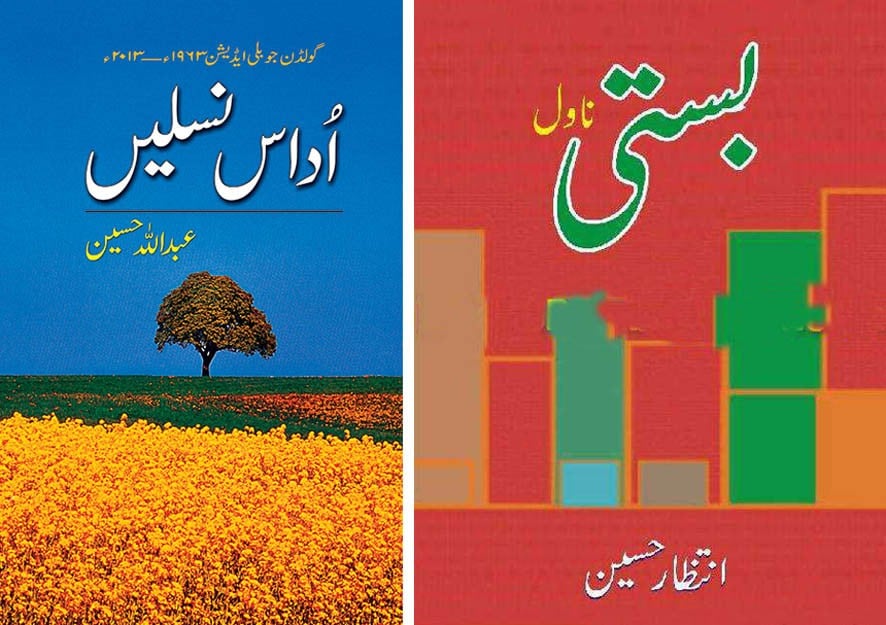
All displaced writers perennially seek to return to their motherland, their paradise, with a strong wish to reclaim their cultural identity

Displacement is a key notion and theme that we come across in postcolonial and modern literatures alike. As a critical notion, it aims to interpret the crisis of identity engendered by colonialism or modernism. Colonised people were forced to abandon or dissociate from their motherlands, their first places, their cultures, traditions and languages. Modern man was cut off from the tradition he had been living with for centuries and hence was morphing into a displaced, split subject.
But there lies a thin distinction between the colonised and modern displaced subjects which should not be ignored.
While colonial displacement occurs essentially because of politically motivated and exploitive cultural reasons, displacement engendered by modernity is philosophical and epistemological in nature. Thus the malaise of postcolonial writers who have to undergo two-fold displacement is further aggravated.
Historically they have to endure displacement at the juncture of colonialism and modernism. Therefore they are uprooted culturally, existentially, and philosophically at the same time. Alienation, disassociation, and deracination are salient features of their displacement. Their writings embody the painful stories of their existentially and culturally alienated selves.
Displacement might be put in a wider perspective as well. It can easily be discerned that at a quintessential level almost all creatures are displaced beings. They are destined to depart the paradise of their mothers’ womb, which may be called their first place. There must be some ‘first place or some basic identity’ to endure the agonies of displacement. It is very interesting to note that the idea that ‘the first place of any creature turns into its paradise’ gets incorporated into the very concept of displacement. All displaced writers perennially seek to return to their motherland, their paradise with a strong wish to reclaim their cultural identity.
While it is true that the idea of displacement is legitimately a construct of postcolonial theory to interpret the literature created by Black and Indian diasporas or by people who migrated to newly created countries, the drift of its theme can be found in classical periods too. Waheed Allahabadi, a less known classical Urdu poet, has composed an unforgettable couplet that embodies an immortal attachment with homeland.
[As I entered the valley of alienation, the memory of homeland followed me till long to persuade me (not to leave the land)]Displacement essentially gives birth to a series of problematics. On one hand one cannot forget the people, culture, landscapes, and language of the abandoned place and on the other they find it difficult, due to variety of reasons, to disassociate themselves from the new place, country, and language that they chose to adopt or were forced to adopt. Nostalgic remembrance of motherland juxtaposes itself with a kind of inevitability of settlement in new land. This kind of juxtaposition results on one side in an ambivalent or hybrid view of their guest communities and culture and on the other side in a birth of an indefinite crisis of identity. Once displacement takes place, the possibilities of reclaiming a singular, solid, monolithic identity come to end.
Either one has to accept and learn to live with the fluidity of identities with their emotional tortures and cultural shocks or they have to perennially bear the agonies stemming from the unmanageable nostalgia of things left, places lost, and language abandoned.
Another problematic of displacement is that experiencing both fluidity of identities and nostalgia develop into a strong creative impulse. Unsurprisingly all major writings of 20th century originate from the theme of displacement. Qurratulain Haider, Intizar Husain, Abdullah Hussein and Mustansar Hussain Tarar have written Urdu stories of displacements. Though Abdullah Hussain and Tarar have not experienced displacement in real sense, their novels Udaas Naslain and Bahao respectively are based on theme of displacements. In a conversation with this author some weeks ago Tarar said that he is originally a Dravidian displaced by nationalist grand narratives.
Khalid Javaid, a Delhi-based distinguished contemporary Urdu fiction writer, has described in his short story Aakhri Dawat (Last Invitation) the miseries attached to the melting down of the monolithic identity of self that quickens the fluidity and plurality of identity.
[I don’t want to live here as an individual. I want to experience myself a being divided into ‘many’ despite being an individual. Therefore each character of this story seems a swinging noose of hanging. I haven’t found any noose that fits my neck. Here is unbearable suffocation. It is a ghastly and disgusting act whereby I, for the sake of my freedom and emancipation keep searching my identity by dividing myself into different pronouns.]It needs to be stressed that the ‘self’ or ‘subject’ or ‘narrator’ of Javaid’s story symbolises the two-fold displacement engendered by colonialism and modernity with existential and cultural anguishes. This story tells us that the noose of hanging tightened [by colonisers] is still swinging, meaning death of culture and crisis of identity are imminent.
The following lines of Iftikhar Arif’s poem Ban Bas (Living in Jungle) describes agonies of the displaced, alienated, disassociated, postcolonial, modern subject.
[Ghastly silence is everywhere. Neither are lamentations, nor tears, nay flowers. Dust of unidentified thoroughfares is what the body and spirit gained (during this journey). How (painful is to note that) the life became disposed and homeless in strange (guest) city.]